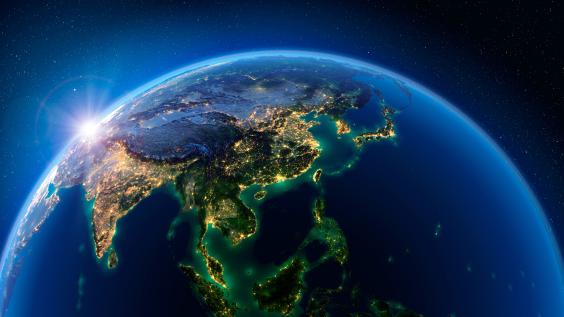The Philippines’ Drug Policy Problem

Table of Contents
Author(s)
Philippines President Rodrigo Duterte, who assumed office on June 30, campaigned on a promise to punish drug users. So far, he is making good on that pledge. At least 3,600 people have been killed in the battle for a drug-free nation, and the alarmingly swift and brutal nature of this drug war has garnered international attention. But Duterte’s anti-drug campaign is not unique in Southeast Asia, nor is it likely to de-escalate in the near future. Here’s what you should know about drugs and drug policy in Asia to put the recent events in the Philippines in context.
Drugs Are a Major Concern in East and Southeast Asia
A long-time supplier of the world’s heroin trade, Asia also is now a major hub for the production, distribution and use of amphetamine-like substances (ATS). As one indicator of the growing market, 42 tons of methamphetamine were seized in East and Southeast Asia in 2013, compared to 11 tons in 2009. ATS are considered the main drug problem in Thailand, Cambodia, Laos, Japan, South Korea and the Philippines. In the Philippines, methamphetamine, or Shabu as it is called locally, has dominated the drug market for the last two decades and accounts for the majority of drug arrests.
ATS appeal to users because they are cheap and the stimulant effects enable people to work long hours. Drug manufacturers like ATS because they yield a quicker return on investment than opium. Startup costs are low and production can occur anywhere, whereas opium requires certain growing conditions and field workers to pick the harvest.
Several factors allow the drug trade to flourish in East and Southeast Asia. The rule of law remains weak in many countries, leaving state institutions susceptible to corruption. Already porous borders between countries have been opened further to enhance economic development in the region, and while this has had positive effects, it also benefits the drug trade. Geographically, Southeast Asia is a convenient hub for drug distribution, and the poverty and insecurity that pervade much of the region have created a homegrown market for the drugs.
Southeast Asia Has a Long Track Record of Punitive Drug Policy
Between 50 and 70 percent of people in prison in the Philippines, Indonesia, Malaysia, Myanmar and Thailand are currently incarcerated on drug-related crimes. More than half of the countries in the region sanction the death penalty for drug offenses. Roughly 500,000 people are held annually in Chinese and Southeast Asian compulsory drug detention centers (CDDCs), which force drug abstinence on detainees. The facilities have been accused of humans’ rights abuses — such as indefinite detention, torture and denial of medical care. Some studies estimate the post-relapse rate for CDDCs to be around 90 percent.
Punitive policies persist despite mounting evidence that they cause public harm and do not curb drug supply or demand. In addition, the region has some of the highest rates of HIV and Hepatitis C infections among drug users in the world, and while some countries have adopted harm reduction policies to deal with this problem, public access to prevention and treatment for HIV and Hepatitis C remains highly limited.
In many instances, Southeast Asian governments have citizen support for their zero-tolerance approach to drugs. Drug users are highly stigmatized. The idea that drug users are entitled to basic human rights, which is a given in other parts of the world, is not popular in Southeast Asia. Punitive policies also are partially a reflection of the repressive nature of the political regimes in many Southeast Asian nations, which view the drug trade as a threat to state authority.
Duterte’s Leadership Is Rooted in Strongman Populism
Duterte campaigned on a promise to restore law and order to the Philippines and to rid the country of the scourge of drug use. Many Filipinos welcomed this pledge. Duterte encouraged a “politics of anger,” capitalizing on the middle class’ frustrations with economic stagnation, lack of public order, rampant corruption and drug use among the poor. For Duterte, a veteran crusader against drugs from his time as mayor of Davao City, the drug and crime issue was an opportunity to successfully play up the idea that a political strongman is the best answer to rampant corruption and weak state institutions.
Duterte’s drug war has been brutal. Thousands of people have been executed in the streets by government forces, without due process. Some had sold drugs, many were addicts and some were innocent bystanders. Duterte has even encouraged vigilantes to kill drug users, saying in one speech, “If you know of any addicts, go ahead and kill them yourself.”
Not everyone supports Duterte’s war on drugs. Signs demanding justice for the war’s victims are displayed in neighborhoods hardest hit by police forces. Critics have called the crusade a war on the poor, noting that law enforcement most often targets impoverished neighborhoods. But so long as the middle class and elites view the drug-using poor as deviants deserving of punishment, support is likely to remain. This is reflected in Duterte’s high approval ratings, recently estimated to be 86 percent, although it is possible, even likely, that people who do oppose the drug war are afraid to speak out.
More Sensible Drug Policy Is Unlikely to Take Root Any Time Soon
Understood in its regional context, it is clear that Duterte’s policy is a continuation rather than a departure from Southeast Asian drug policy, suggesting that for many Filipinos, this latest drug war may not seem unusual and may even be welcome as a necessary step to tackle drug use in the country.
Duterte has made it clear that any criticism of his leadership, international or domestic, will be met with scorn and verbal retaliation. He seems more likely to double-down on his policies when faced with opposition than to heed alternative viewpoints. It is also unlikely that any of the country’s neighbors could convince Duterte to back down from his hardline approach, or that they would want to, given the region’s punitive traditions. In countries like the Philippines, the hope for a more peaceful nation and the frustration with past government failures mean that a high level of violence may be tolerated if the people are made to believe it is necessary for the greater good of the nation.
Katharine A. Neill is the Alfred C. Glassell, III Postdoctoral Fellow in Drug Policy. Her current research focuses on state sentencing policies for drug offenders and the legalization of medical and recreational marijuana.
This material may be quoted or reproduced without prior permission, provided appropriate credit is given to the author and Rice University’s Baker Institute for Public Policy. The views expressed herein are those of the individual author(s), and do not necessarily represent the views of Rice University’s Baker Institute for Public Policy.



